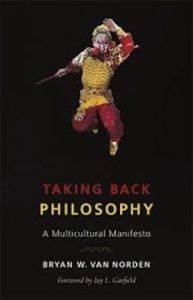Jonardon Ganeri in the Los Angeles Review of Books:
 “IT’S HARDER to get two philosophers to agree,” says the ancient savant, “than two water-clocks.” Philosophers love to disagree, and disagreement is the lifeblood of philosophy. The tools and techniques of philosophy — debate, reasoned deliberation, weighing of evidence, clarification of concepts, consideration of consequences — are all instruments in the management of disagreement. And there is disagreement whenever there is reflection — whenever, that is to say, people think about things, and seek to comprehend and make sense of what is going on in the world around them, or between themselves and others, or inside their own minds. Then the question arises: who is right? Which brings in its train further reflection on who has the better evidence and the sounder arguments and so, inevitably, still more reflection on what it is that counts as good or bad in matters of evidence and argument. Even before the times of Socrates and the Buddha, in the oldest of the surviving Upanishads, we find these questions, and they have been asked ever since by people everywhere.
“IT’S HARDER to get two philosophers to agree,” says the ancient savant, “than two water-clocks.” Philosophers love to disagree, and disagreement is the lifeblood of philosophy. The tools and techniques of philosophy — debate, reasoned deliberation, weighing of evidence, clarification of concepts, consideration of consequences — are all instruments in the management of disagreement. And there is disagreement whenever there is reflection — whenever, that is to say, people think about things, and seek to comprehend and make sense of what is going on in the world around them, or between themselves and others, or inside their own minds. Then the question arises: who is right? Which brings in its train further reflection on who has the better evidence and the sounder arguments and so, inevitably, still more reflection on what it is that counts as good or bad in matters of evidence and argument. Even before the times of Socrates and the Buddha, in the oldest of the surviving Upanishads, we find these questions, and they have been asked ever since by people everywhere.
Because philosophers love disagreement, they also love diversity. There is nothing better in philosophy than a startling, fresh idea, a possibility in the landscape of thought not previously encountered and explored, some new perspective on an old problem, an original refutation to a seemingly inviolable tenet or tenaciously held belief. It’s notoriously much harder to defend a new claim than to knock an old one down; fresh thinking in philosophy is comparatively rare, and all the more exciting for it. And, perhaps exactly because it deals with issues at a high level of abstraction, philosophy is a very broad church.
More here.
